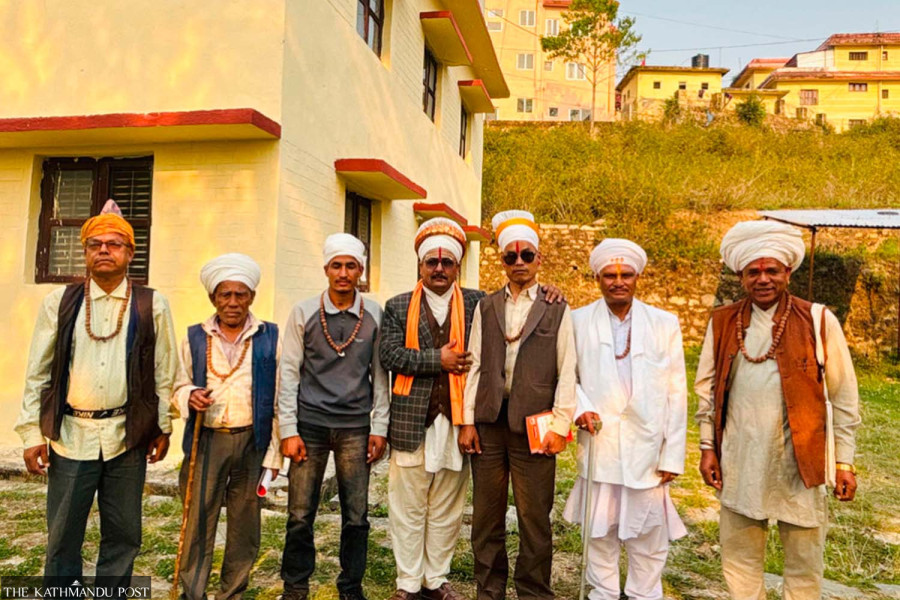Sudurpaschim Province
Achham shamans join push to stop forcing women into huts during periods
Officials have engaged shamans to help end Chhaupadi tradition and related gender-based superstitions.
Menuka Dhungana
Religious leaders and shamans in remote Achham district have pledged support for government efforts to eradicate Chhaupadi—the deeply-rooted practice of isolating menstruating women—saying it is time to break with harmful customs and raise awareness across communities.
The district’s Social Development Office held discussions with shamans, known locally as dhami, and spiritual leaders from all 10 municipalities, aiming to do away with entrenched superstitions that perpetuate gender-based discrimination. The move comes amid ongoing challenges in ending Chhaupadi, which continues in parts of western Nepal despite being outlawed by the Supreme Court in 2005.
Over a decade after the top court order, Parliament in August 2017 enacted a new law criminalising the centuries-old custom.
As per the law anyone forcing a woman to follow the custom is liable to a three-month jail sentence or Rs3,000 fine, or both.
Despite that the practice has been given continuity in certain parts of the country, particularly in far-flung villages.
The recent meetings in Achham were prompted by concerns that belief in deities and fear instilled by shamans were fuelling adherence to the practice, under which women are isolated to sheds during menstruation.
Tara Chalaune, 65, a shaman from Turmakhand Rural Municipality, said he had demolished his own menstrual hut when the campaign began. “Even the gods do not ask women to stay in sheds,” said Chalaune. “I am a shaman of the republic, not of the feudal time.”
Chalaune and others suggested forming a network of religious leaders and shamans to run awareness campaigns and support the campaign to dismantle menstrual sheds. “The idea that disasters happen if menstruating women stay in the house must end. Times have changed—our thinking must too,” he said.
Motisingh Kunwar, a shaman from Sanfebagar Municipality, highlighted the societal pressures on shamans. “Everyone knows that shamans do not eat food touched by others, do not allow menstruating women to stay inside the house, and do not touch them. But no one understands the social pressures behind why shamans do this,” he said. “To maintain social norms and earn respect, shamans are compelled to say and enforce certain things.”
Other participants agreed that perceptions were slowly shifting.
Karna Bahadur Budha from Turmakhand said that while menstruating women still may not stay inside homes, they are now allowed to stay closer than before. “We haven’t been able to keep menstruating women directly inside the house. But now we keep them closer to the house than before,” he said. “When society stands together, a shaman alone cannot insist on sending them to the shed. We haven’t been able to say, ‘Stay at home during your period, nothing will happen.’ But now, we must say it.”
Moti Kami from Mangalsen Municipality said that managing religious practices should be easier than expecting every home to adapt to the same standard. “It’s more practical to bring shamans into awareness efforts than to expect behavioural change in every household overnight,” he said.
The Social Development Office said the campaign is part of a broader push to combat harmful practices, violence, and child marriage through dialogue with spiritual leaders. “Many shamans are now standing against superstition,” said office chief Dambar Rawal. “That opens the door to more community-based advocacy.




 11.12°C Kathmandu
11.12°C Kathmandu















